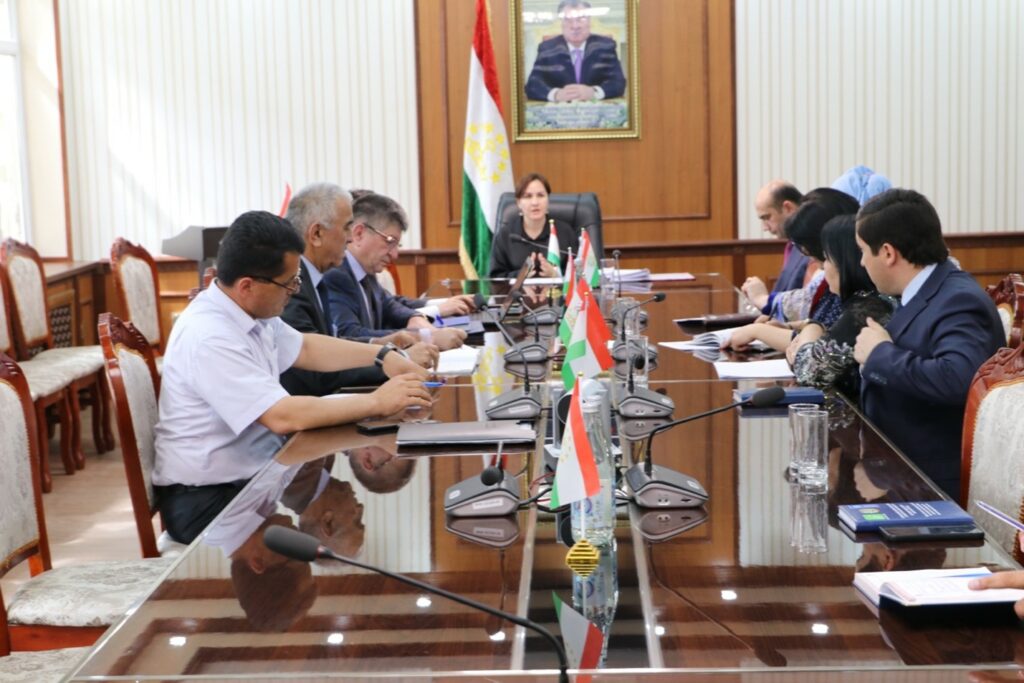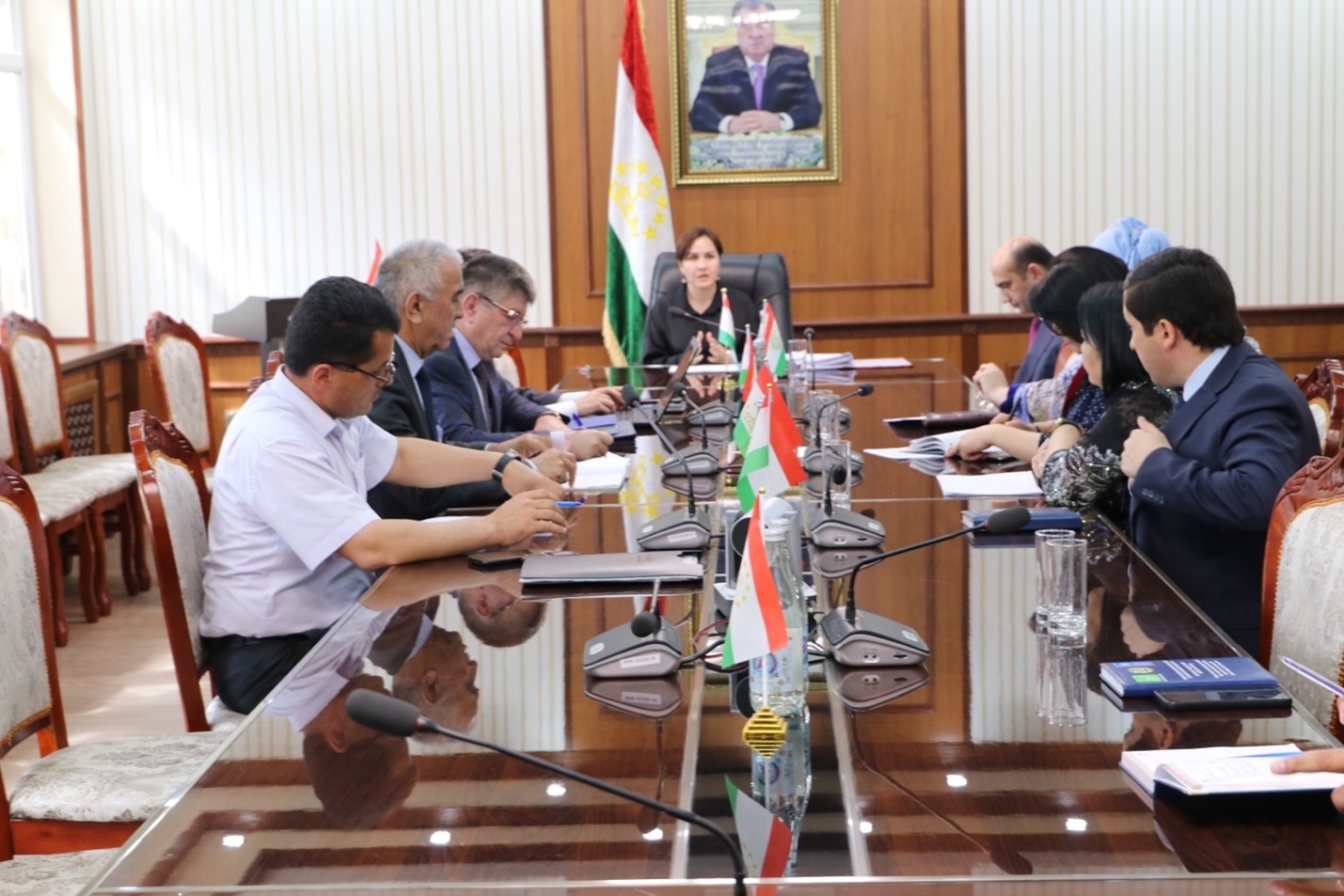PROJECT TITLE
Development of the Environmental Code of the Republic of Tajikistan
Duration: Sep 2023 – Nov 2024
Location: Tajikistan
Funding source: The World Bank,
Status: Active
Background
The development and adoption of qualitatively new progressive environmental legislation in the form of the Environmental Code marks a new phase in the evolution of environmental legislation through its codification, an honorable and promising endeavor that requires the public, scientific, and professional community to contribute. This document represents a great achievement not only for the current generation but for future generations as well.
Today, environmental legislation has increased significantly in volume, and the issue of its implementation has become increasingly important. Considering the large number of regulatory legal acts and the development of legislation in a variety of environmental protection areas, it is evident that the lack of compliance with the principle of lawmaking from the standpoint of preserving the unity of the ecological system of the Republic of Tajikistan has resulted in contradictions and shortcomings within environmental legislation.
As a form of systematization and law-making activity, the codification of legislation is a complex form of systematization. Therefore, the process of developing the Environmental Code is complex, requiring a thorough analysis of environmental legislation and public relations matters related to the environment. Developing a normative legal act in a timely manner will ensure that it is able to regulate environmental relations effectively in the future and play an effective role in their regulation, taking into account the science of environmental law, the experience of environmental legislation in foreign countries, and the experience of authorized bodies within the industry in order to be effective. Having developed the draft Environmental Code in foreign countries, it is evident that preparing this document takes a considerable amount of time.
The government of Tajikistan has therefore adopted a policy aimed at specifically addressing this issue. That is why at the level of strategic planning documents of the country (concept, strategy and program) for detailed regulation of relations in the field of environmental protection, the issue of development and adoption of the Environmental Code is directly provided. The development of the Environmental Code of the Republic of Tajikistan is crucial due to its role as a normative-legal document that regulates various aspects of environmental protection and the responsible use of natural resources. The code should consist of a general section containing key institutions and fundamental environmental regulations, such as environmental accounting, monitoring, expertise, certification, standardization, auditing, and management.
Recognizing the paramount significance of environmental protection and ensuring environmental safety, particularly in activities impacting the environment and natural resource utilization, it is imperative to embed these principles in the Law of the Republic of Tajikistan “On Normative Legal Acts” and emphasize the strengthening of environmental protection in the general section of the Environmental Code. Furthermore, taking into account social, economic, and legal factors, it is essential to develop and adopt the Environmental Code of Tajikistan in order to address the current ecological and economic challenges. These challenges include the ecological crisis resulting in disregard for public environmental safety requirements, economic crisis and food scarcity, and the transition to a market economy.
Overall objective
The primary objective of the formulation of the Environmental Code of the Republic of Tajikistan is to create a legal structure dedicated to safeguarding and conserving the natural environment, facilitating sustainable development, and enhancing public awareness and involvement in environmental matters.
The necessity for formulating a draft Environmental Code in the Republic of Tajikistan has been influenced by multiple factors.
- the number of contradictions in environmental legislation is increasing every year;
- overabundant reiteration of environmental laws;
- the legislation governing environmental protection stipulates the creation of numerous by-laws; however, the lack of their enactment has resulted in a complete absence of mechanisms for enforcing this legislation. Consequently, the ongoing development of the draft Environmental Code aims to rectify this issue (for instance, an examination of 16 specific laws related to environmental protection indicates that the establishment of 140 by-laws is necessary);
- the drafting of a normative legal act governing environmental protection, such as the Environmental Code of the Republic of Tajikistan, is an important area of legal policy;
- Environmental protection legislation in the Republic of Tajikistan must be brought into compliance with international standards and international acts as soon as possible;
- it has been identified that some environmental issues require legislative attention, including eco-labelling, glacier protection, climate change, strategic environmental assessments, and environmental requirements for land, water, forests, and other objects;
- legislative norms in the area of environmental protection should be developed in accordance with the directions of the Green Economy Strategy and the principles of a green economy;
- overall, the development of the draft Environmental Code contributes to the alignment of the Republic of Tajikistan’s environmental legislation with foreign legislation as well as the implementation of the instructions contained in the concept, strategy, and programs.
Expected outcomes.
- there will be an elimination of contradictions in environmental legislation;
- excessive repetition of environmental legislation is prevented;
- within the framework of the codification act and specific bylaws, a mechanism is provided for the implementation of sectoral legislation in the draft Environmental Code;
- the development of the draft Environmental Code as a comprehensive legal document plays a significant role in the creation of regulatory legal measures aimed at environmental protection, which represents a crucial aspect of the nation’s legal policy framework;
- support in the development of the preliminary Environmental Code aimed at achieving the swiftest possible harmonization of environmental protection laws in the Republic of Tajikistan with international standards and agreements established in the realm of environmental conservation;
- the development of the preliminary version of this Code aids in the governance of emerging relationships pertaining to environmental protection, a necessity for regulation that has emerged at the legislative level;
- the development of the preliminary version of this Code facilitates the application of the “Green” economy principle and establishes a practical foundation for the prompt execution of the directives outlined in the Strategy for the Development of the “Green” economy;
- the development of the draft Environmental Code aids in aligning the environmental legislation of the Republic of Tajikistan with that of other nations, as well as ensuring the comprehensive execution of directives outlined in the concept, strategy, and programs.

Contact: Project Manager: Zebuniso Muminzoda, Director of the CAREC Country Office in the Republic of Tajikistan, tajikistan@carececo.org

